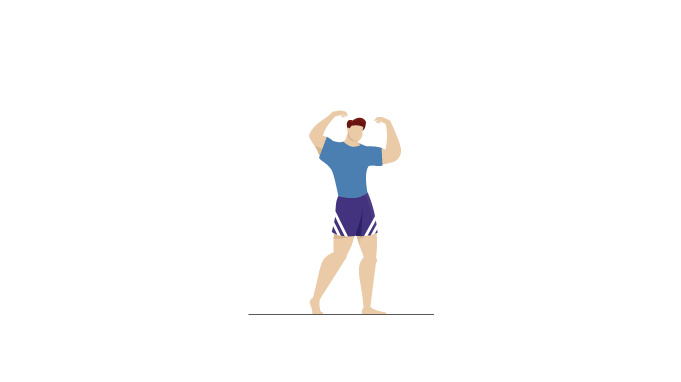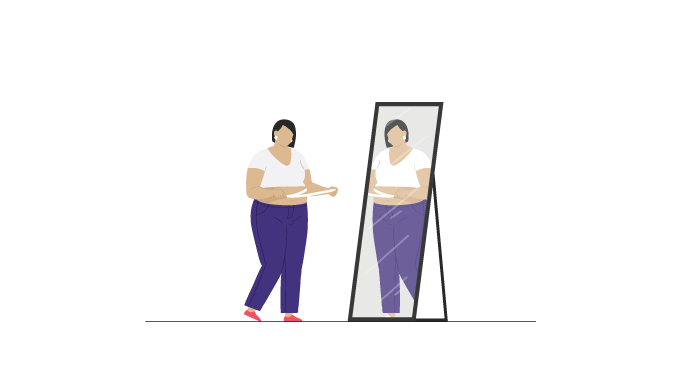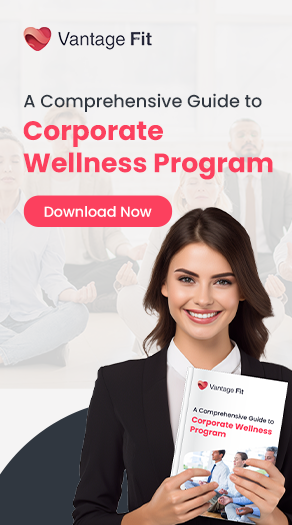5 Components of Fitness and Exclusive Exercises to Boost Employee Health
Staying fit may influence employee health, impacting the company's bottom line. A healthy and fit physical state contributes to employee engagement. When workers are enthusiastic about their work, businesses may benefit from increased productivity and innovation.
Regular exercise benefits everyone. Higher-level workers and executives benefit from physical fitness, as it relaxes their minds and increases alertness and focus. Stress at work can cause executives to develop poor decision-making abilities. Because they are preoccupied with every decision, they fail to see the bigger picture.
An employee at top management who is enthusiastic about their work and in good physical health may be a big advantage to the company's success. Additionally, the organization incurs lower healthcare costs when workers are fit and healthy.
Companies might invest in employee wellness programs to encourage employees to lead healthy lifestyles. These initiatives can facilitate employee recognition and rewards.
This article revolves around the 5 components of fitness and focuses on boosting employees' physical activity to promote occupational health.
Benefits of Employee Fitness

The World Health Organization (WHO) recommends that adults aged 18 to 64 participate in at least 150 minutes of moderate exercise weekly. This can be broken down into sessions: 30 minutes a day for five days a week.
Physical activity has many health benefits for all workers, regardless of whether physical fitness is required for their jobs. This area is often overlooked for office workers, as their roles tend to be sedentary by nature. Employees or employers do not always consider this situation’s negative long-term health effects.
Regular exercise has been reported to raise productivity by up to 32%, reduce employee absenteeism by up to 25%, and boost morale.
We have listed here a few benefits of physical activity among employees
- Improved mental health
- Blood pressure regulation
- Higher quality of sleep
- Healthy weight and low body fat percentage
- Stress management
- Improved cardio-respiratory functioning
- Increased muscular strength and endurance
- Reduced chances of injuries
- Reduced risk of developing chronic conditions such as heart disease or type 2 diabetes
There are clear benefits for employees and corporations. Any firm would benefit from having a physically fit and healthy employee. According to studies, workers who engage in 75 minutes of strenuous physical activity each week miss 4.1 fewer work days per year.
Having physically active employees can lead to:
- reduced sickness and sick days (reduce absenteeism)
- improved productivity, performance, and morale
- lower employee turnover
- improved creativity and problem solving
- reduced workers’ compensation costs
- decreased work-related stress
- increased team building amongst employees
- the creation of a healthy workforce
The 5 Components of Fitness

The five components of fitness all work together to promote physical fitness and provide direction for achieving it. You are well aware of the advantages of prioritizing physical activity. The secret is knowing what "fitness" is and how to acquire it.
This is when the five fitness components come into play. They are a useful tool for planning and carrying out your well-balanced workout routine since they serve as the model for the American College of Sports Medicine (ACSM) physical activity guidelines.
Including these in your training program guarantees you the maximum health advantages possible from your workouts.
Five Components of Physical Fitness
- Cardiovascular endurance
- Muscular strength
- Muscular endurance
- Flexibility
- Body composition
1. Cardiovascular Endurance

The ability to perform activities using your entire body for a lengthy period of time at a moderate to a high level is known as cardiovascular endurance. Your ability to easily complete daily chores can be enhanced by increasing your cardiovascular endurance.
Good cardio fitness allows you to perform different activities for longer because your heart and lungs can deliver oxygen and nutrients to your working muscles. Additionally, it can lower your chance of developing health conditions, including diabetes, heart disease, and stroke.
When you perform cardio exercises, your body responds in the following ways:
- Your blood volume and delivery system are improved.
- Your resting heart rate is lowered.
- Your heart pumps out more blood.
- Your muscles get stronger.
- Your ligaments, tendons, and bones get stronger.
- Your body is more able to use fat mass as an energy source.
Exercises for cardiovascular endurance include:
- Walking
- Running
- Jogging
- Hiking
- Swimming
- Dancing
- Cross country skiing
- Aerobics
- Stair climbing
- Rowing
If you quickly become exhausted or have shortness of breath throughout your workout, reduce the intensity and then gradually increase.
2. Muscular Strength

Any workout that causes your muscles to perform harder than normal is a strength exercise. This improves your muscles’ endurance, strength, size, and power. The exercises require lifting or pushing against resistance using your body weight.
The pace of bone and muscle loss brought on by aging is slowed by muscle-strengthening exercises, which also help retain the capacity to do daily chores. These activities can also aid in lowering your risk of falling.
According to medical experts, increasing your flexibility can help you stand more upright, feel less pain and discomfort, and lessen your chance of injury. Flexibility will also make it easier for you to continue performing regular chores.
Use heavier weights with fewer repetitions and push your muscles to exhaustion with each session to increase muscular strength.
Examples of muscle-strengthening activities include:
- Lifting weights
- Working with resistance bands
- Heavy gardening, such as digging and shoveling
- Climbing stairs
- Hiking
- Cycling
- Dancing
- Push-ups, sit-ups, and squats
- Yoga
3. Muscular Endurance

Physical endurance assesses the length of time your muscles can sustain an activity, as opposed to muscular strength, which determines how much weight you can lift or move. It has a significant impact on athletic performance. You could equate stamina with muscular endurance.
One of the two elements that contribute to total muscle health is muscular endurance (muscular strength is the other). Consider muscular endurance as the capacity of a certain muscle group to continually contract against a specific resistance.
A good example is long-distance cycling. Bicyclists must have fatigue-resistant muscles in their legs and glutes to ride their bikes over long distances, frequently up steep inclines.
Some exercises to build muscle endurance include:
- Running
- Swimming
- Power Walking
- Cycling
- Weightlifting
- Sprinting
- Crossfit
- Basketball
- Squats
- Bodyweight Planks
- Push-Ups
- Sit-Ups
- Lunges
Using lighterweights and more repetitions will help you build muscular endurance over time.
4. Flexibility

The range of motion of a joint or set of joints is referred to as flexibility. Flexibility is essential for day-to-day life. For example, it can make it simpler to keep your balance, reach your office cabinet's top shelf, or stoop down to pick something up off the ground.
Some hobbies, including gymnastics, dancing, and martial arts, call for greater flexibility. For maximum benefit, you should stretch each of the major lower body muscle groups before and after sporting activity. The exercises below provide options for stretching those large muscle groups.
Here are some exercises that you can perform to become more flexible -
- Forward Lunges
- Side Lunges
- Cross-Over
- Standing Quad Stretch
- Seat Straddle Lotus
- Seat Side Straddle
- Seat Stretch
- Knees to Chest
- Yoga
5. Body Composition

Body composition is defined as the proportion of fat mass to fat-free mass, such as muscle and bone. Body fat % is used to assess body composition. Body fat for a fit woman typically ranges from 21% to 24%. Body fat for a fit man typically ranges from 14% to 17%.
The proportion of body fat may be calculated in several ways. Simple tests may be run to determine the number at many fitness clubs and medical clinics. There are other body fat scales that measure percentages as well.
Exercises to maintain body composition:
- Push-Ups
- The Burpees
- Deadlifts
- Planks
- Sit-Ups
- Pull-Ups
- Skipping
- Squats
What Can Employers do to Promote Physical Activity in the Workforce?
Corporate wellness programs and employee health initiatives are growing in popularity today. The goal of the modern workplace is to support a positive work-life balance.
7 Ideas To Keep in Mind as you Develop a Fit and Healthy Workforce
-
Develop policies to allow staff to have more flexible working hours. Starting later, finishing earlier, or having a longer lunch break could be the difference between your employees being able to fit in some physical activity or not – so it shouldn’t be taken lightly.
-
Meetings may be conducted standing up or while moving around—as the covid-19 pandemic taught us. Encourage your managers and staff to do more phone or in-person "walk and talk" meetings.
-
Offer facilities that make it more visible and easier for your employees to engage in physical activities. The obvious one is an in-house gym with shower facilities, but this could be cost-prohibitive for small to medium companies. A good alternative is to offer corporate gym memberships at a discounted rate.
-
Offering secure bike storage facilities could also encourage more employees to cycle to work. Even better, this could be combined with a company-wide event, “cycle to work day or week.”
-
Office/team building exercises and lunchtime walking/running groups - These are excellent and simple activities that use technology and also allow employees to socialize.
-
Stand-up desks can be introduced. It is said that not moving at all is just as detrimental to our health as sitting down. It encourages more frequent pauses and stretches as well as improved posture.
-
Raising awareness about fitness is a necessity. While this might seem over-simplistic, highlighting the dangers of a sedentary lifestyle in an informative and non-threatening way may encourage more movement for the right reasons.
Takeaway
While certain benefits of having a fit and healthy staff are clear, others are occasionally disregarded. Healthy employees are less likely to miss work due to illness, which lowers the cost of absenteeism for your company.
Additionally, they contribute actively to fostering a healthy workplace culture, cooperate and contribute to the team, and are less likely to engage in conflict at work. They are also more likely to feel driven and productive at work.
So which exercises are you incorporating into your workout routine?

Vantage Fit - A complete AI-Powered Solution for seamless implementation of your Corporate Wellness Program to nurture a healthy and engaged workforce



